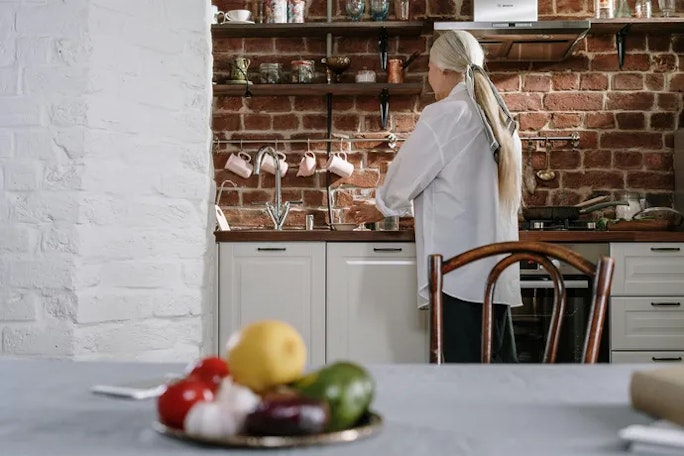Table of contents

Is your child struggling in the current housing market? If you have the financial resources, there are various options to help your child buy a house. From making a donation to buying and renting a second home, from acting as a guarantor to providing a family mortgage. We discuss the options with you, including the financial implications.
Go directly to:
- Making a (tax-free) donation to your child
- Providing a family mortgage to your child
- Acting as a guarantor for your child's mortgage
- Buying a second home and renting it to your child
- Buying a house with your child
- Living together with your child
Before we begin…
Many parents want to support their children in buying a house, especially given the challenges that starters face today. For many couples, it is already a challenge to secure a house, let alone for a son or daughter looking for a home independently. Rising rental prices also put extra pressure on finding a property to buy.
Get good advice
However, it is important to first consider what you can spare and the financial consequences of helping your child with a house. Below you will read the different options, including the financial impact. We strongly recommend discussing the possibilities with a financial advisor and possibly a mortgage advisor, so you can make a well-informed decision.
Option 1: Making a (tax-free) donation to your child
Do you have a lot of savings or a significant surplus value on your property that you can release? In that case, you can make a donation to your child, making more money available for buying a house. The extra amount means your child needs a lower mortgage and the monthly payments will be lower. This increases the chances of finding and being able to afford a house to buy.
Tax-free donation
In 2024, you can make a tax-free donation to your children between the ages of 18 and 40 up to the amount of €31,813. This is a one-time donation. If your child has already passed the age of 40, but does have a partner within the age category? Then you can make a one-time tax-free donation to that person up to the amount of €31,813. These rules also apply not only to parents but also to other people who would like to make a donation. Think of a step-parent or a good friend.
For the rest of the cases, you can use the annual tax-free donation exemption up to an amount of €6,633. If you want, you can also donate more money to your child. But beware: your child will then have to pay tax on the amount that exceeds the tax-free donation limit. On the website of the Tax Department, you can calculate how much gift tax your child has to pay.
The jubelton was abolished in 2024
You've probably heard a thing or two about the jubelton. This was a tax-free donation of €106,671 that you could make as a parent to your child for the purchase of a house. This rule was introduced in 2016 and was widely used. However, it quickly faced criticism, as it created more inequality among starters (with or without wealthy parents) and higher bids in the housing market.
Therefore, the government has decided to abolish the jubelton. In 2023, the donation amount was already reduced and from 2024, the jubelton is completely abolished.
Through Mijn Verkoopmakelaar, you can quickly and easily find the best purchase Real estate agents in your area. Sign up for free and receive proposals from purchase Real estate agents in your mailbox. If you wish, you can also immediately schedule a free appointment with a mortgage advisor.
Find a purchasing agent- Free
- Independent
- No obligation
- Fast
Option 2: Providing a family mortgage to your child
A second way you can help your child buy a house is by providing a family mortgage. Instead of a mortgage from the bank, your child then takes out the loan from you. This structure is also called a 'family bank' or 'family loan'. Not only parents, but also other family members, such as brothers, sisters, grandparents, uncles or aunts, can use this option to help your child with a mortgage.
You determine the conditions together
Just like with a regular mortgage, the house serves as collateral for the loan. Your child makes a monthly payment of repayment én interest to you. You together determine the conditions of the loan, such as the borrowed amount, the interest rate, the term and the method of repayment. It is wise to record these conditions in a written agreement, possibly with a notary, but this is not mandatory.
The mortgage interest is tax-deductible, provided you comply with the conditions of the Tax Authorities . Keep the following points in mind when setting up the conditions:
- Market-conforming interest: The mortgage interest that you agree on must be market-conform. If the interest is too low, the Tax Authorities can see the difference as a gift. This can have tax implications. Read here how the Tax Authorities assess the interest rate on family loans.
- Mortgage interest deduction: If your child wants to use the mortgage interest deduction, the loan must be repaid linearly or annuity-based within a maximum of 30 years.
- Tax advantage through interest deduction: It may be advantageous to agree on a higher interest rate, because this is tax-deductible. If you as a parent (or other family member) want, you can gift back the excess interest tax-free to your child. If you want to use this option, make sure you read the rules well or make an appointment with a financial advisor.
Read further about the conditions for deducting mortgage interest with a family mortgage to be sure that you meet all requirements.
Borrowing more than 100% of property value
Because you determine the conditions for the family mortgage yourself, you can also make the mortgage amount as high as you want. This also makes it possible to borrow more than 100% of the appraised value of the house. This is not possible when taking out a regular mortgage with a bank. You can use the extra money, for example, to renovate the house, buy off a leasehold right or finance the costs when buying a house.
Family mortgage alongside a regular mortgage
In many cases, a family mortgage is combined with a regular mortgage. For example, this could be the case if the bank does not want to provide the full mortgage amount and the family lends the difference. However, keep in mind that the mortgage lender takes the family bank loan into account when determining the maximum mortgage. As a result, the amount you can borrow from the bank may be lower, because your total debt is higher.
However, it may be that you get a lower interest rate on the regular mortgage, because you pose a lower risk to the bank. This is especially the case if you need to borrow a smaller amount from the bank due to the family mortgage, resulting in a more favorable ratio between the loan and the property value (the so-called LTV ratio). How this is handled differs per mortgage provider.
Read more about mortgages
Option 3: Co-signing for your child's mortgage
A third way to help your child buy a house is by co-signing. In this case, your child applies for a mortgage from a regular bank. For the part of the mortgage that your child cannot carry independently, you co-sign. This means that as a parent you are liable for that amount. This structure is often called a generational mortgage.
You are liable to supplement any shortfalls
Your child remains primarily responsible for paying the monthly payments of the mortgage. But if he or she is unable to fully meet the monthly payments, the bank can call on you to make up the shortfall. This 'shortfall' could also be the full amount. Since with a generational mortgage not just your child, but you too are responsible, the bank will also assess your income to determine if you can co-sign.
Mortgage can be solely in the child's name later
At the moment that your child can independently carry the full mortgage based on his or her income, the mortgage can be fully transferred to your child's name in the future. The bank will first assess whether this is possible. Keep in mind that the mortgage rules may have changed by then, which makes it difficult to estimate in advance how long you as a parent will remain connected to the mortgage.
Note: If you want to move or do a renovation in your house in the future, the mortgage of your child will be taken into account when you apply for financing.
Option 4: Buy a second home and rent it to your child
If your child is not yet ready to buy their own home, for example, because they are still studying? If you have the financial means, you could consider buying a second home and renting it to your child. This offers your child the opportunity to live in a desired city and avoid high rental prices from commercial landlords, while you can invest your savings or overvalue in real estate and possibly build up extra assets.
Record the agreements with a notary
Your child pays you rent every month, just like a regular rental property. This can yield you more return than leaving it in a savings account. If you want, you can also choose to give back (part of) the paid rent as a gift to your child at the end of the year. In addition, you can arrange with your child that he or she can buy the house after a certain period, so that your child eventually becomes the owner of the house. It is wise to record all agreements about the property with a notary.
Considering buying a house for your child? Pay attention to the following:
- As a parent, you do pay wealth tax on the second house in box 3. This falls under the highest tax rate.
- As a parent, you have to pay more transfer tax for a house that you buy for your child. Because you are not going to live there yourself, the Tax Authority sees the property as an investment. Therefore, in 2024 you pay 10.4% transfer tax on the purchase price instead of 2% transfer tax.
- As a parent, you are not entitled to mortgage interest deduction on the mortgage you take out for a house for your child. You may only deduct the mortgage interest for a mortgage where you live yourself.
- If you take out a second mortgage, this has consequences for the maximum amount that you can borrow for your own home in the future. If you want to borrow more for a renovation in the future or use the overvalue to supplement your pension, you cannot or only partially use the overvalue.
- Also keep in mind that you are dealing with the rules of rent protection. Read our article about selling a rented house for more information on this.
If your child's income is below the established limits of the Tax Authority, he or she can apply for rent allowance, just like any other tenant.
Buying a second home without a mortgage?
Are you considering buying the second home with your own money? Then read more about the pros and cons of buying a house without a mortgage. It is wise to have a conversation with a financial advisor to discuss the options. For example, it may sometimes be smarter to finance the property partially or fully with a mortgage.
- Receive proposals from multiple real estate agents
- Get clarity about the costs in advance
- Includes a free mortgage consultation with a mortgage advisor
- Choose based on performance and results
- Over 3000 people have preceded you
- Free & without obligation
- Free
- Independent
- Without obligation
- Fast
Option 5: Buying a house together with your child
It is also possible to buy a house together with your child. The mortgage is then split into two parts: you both become 50% owners. Here too, you can use savings or surplus value to finance your part of the mortgage. In the case of surplus value, you can increase your current mortgage. With this increased mortgage, you can then finance a part of your child's house.
Note: Again, it applies here that you have to pay wealth tax in box, because it concerns a second house. In addition, you have no right to mortgage interest deduction, because this is not about a house where you are going to live in yourself.
Read more here about buying a house together
Option 6: Living together with your child
In addition to the options mentioned above, you can also think of creative solutions to help your child find a suitable home.
The kangaroo house
For example, some parents choose to buy a new home where they can live together with their son or daughter. In a 'kangaroo house', you are both liable for the mortgage, for example. The child can then (possibly with a partner) come to live in the house, with both parties having their own living space. This can also be a solution for caregiving.
Splitting the house
If you own a large house, it may also be possible to split the house. In that case, your child (possibly with a partner) can go live in the other part of the house.
Get good advice
Here too, get good advice from a financial advisor and make sure all agreements are clearly written down to avoid misunderstandings later. Think carefully about the possible consequences, such as a lack of privacy and a changing dynamic in your relationship.
Living with your child can have advantages, such as shared costs and proximity, but it also requires clear agreements. Discuss beforehand how you will deal with common and separate spaces, financial contributions, and possible future changes, such as when your child decides to move.
In addition, it is important to map out the tax and legal consequences of such a construction. For example, splitting a house can bring legal and permit requirements, and there may be tax consequences for wealth tax and mortgage interest deduction.










